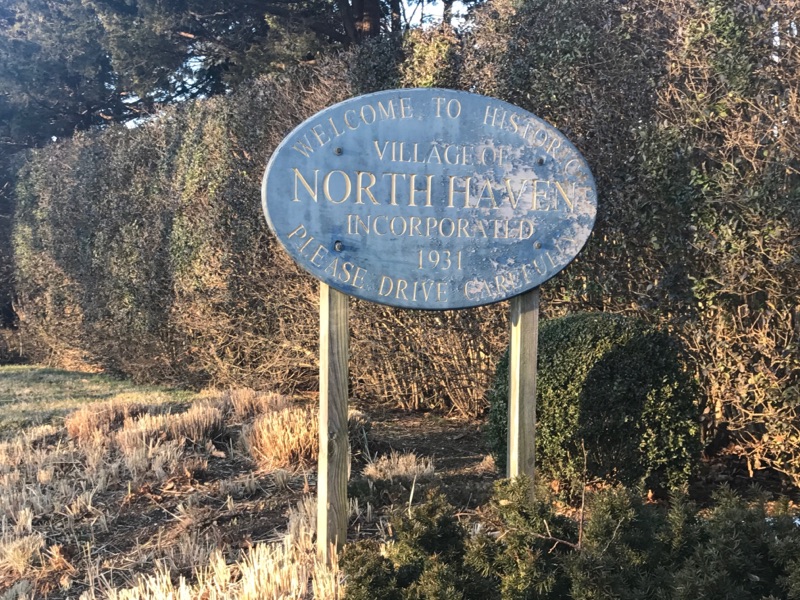
In what appeared to be a case of déjà vu, the North Haven Village Board on August 16 adopted an update to its code that will require 75-foot setbacks from wetlands, bluffs and beaches.
The board had adopted a similar law in July but was later informed by its attorney, Scott Middleton, that because a previous meeting had been canceled, the village was required to publish a new public notice for the hearing, rendering the law it passed null and void.
The board revisited the law, with little discussion, other than when Trustee Terie Diat went over two changes to the legislation.
A section of the law heard last week was tightened from what had been in the first version. Initially, the law stated that any changes in “character or use” to an existing house or accessory structure, such as a pool or garage, that is within 75 feet of a wetland, dune, or beach, would be prohibited. The new version prohibits any enlargement or alteration of a preexisting building that is within the setback.
A second change exempted any applications that were being reviewed by the Village Planning Board or Zoning Board of Appeals as of July 19.
Last month, Eric Bregman, an East Hampton attorney representing Michael and Lyla Gluckman, who were in the process of obtaining approvals for a pool within the wetland setback, urged the board to provide an exception for active applications and warned the board that if it adopted the law, as it later did that evening, it could be easily overturned in court.
The board did hear from one dissenter last week. Real estate developer Jeff Greene, who owns property at Tyndal Point at the north end of Ferry Road, said most setback laws allow additions that are built away from the protected natural feature.
“I think this is a big overreach,” he said of the ban against any new construction on a preexisting house. He said that on his property, there is a small house that his family may want to enlarge for one of his children at some point in the future. Tearing it down to build a larger house that meets setbacks would cause “greater destruction” than merely allowing an addition in a more conforming portion of the lot, he said.
A homeowner could still petition the Zoning Board of Appeals for a variance to do work within the required setback.
North Haven was one of the few East End villages or towns that did not have its own wetland setbacks. Instead, its regulatory boards have traditionally followed the 75-foot setbacks typically required by the State Department of Environmental Conservation.
The board also indicated that it will likely adopt some type of code change banning the planting of some types of bamboo and holding property owners responsible for its removal if the plant spreads from their property to a neighbor’s property.
The board responded to Barbara Peltz, a resident of Hawthorne Avenue, who said that her property had been surrounded on three sides by bamboo. One neighbor removed it from his property at great effort and expense, she said. Peltz said she had discovered that bamboo had begun to creep onto her property line from her other neighbors.
“Not only do we want to ban it,” said Mayor Chris Fiore of new plantings, “but we want to put into effect some legislation that if your bamboo spreads onto an adjoining property, you would be responsible for its removal.”
Although the board pledged to act on a measure, members said they wanted to move cautiously and review state and other restrictions on the plant. “Running” types of bamboo must be contained by a 3-foot metal barrier to prevent it spreading.
Fiore cautioned Peltz that it could take some time. She urged the board to act “before my heirs have to take care of it.”